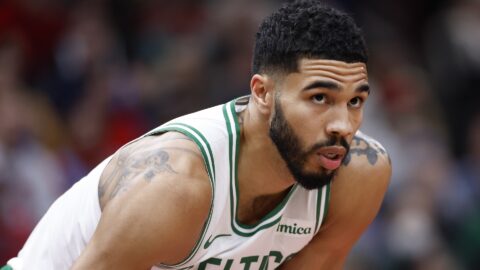BOSTON — In any transaction, the emotions — and the stress — are different for a buyer and seller. It is no different at the baseball trading deadline.
With Friday's 4 p.m. ET deadline approaching, the Red Sox, as they have for most of this decade, are considered buyers, looking to upgrade an already strong team.
"I think it affects the clubhouse if you're a seller a lot more than if you're a buyer," said Sox third baseman Mike Lowell. "When I was with the Marlins [from 1999-2005], people were on pins and needles a lot more because it was almost like … they were trying to reload every year, giving up guys. So guys might have been on edge.
"But I think we [the Red Sox] are usually buyers. If you're a buyer, you're usually playing pretty good and not really going to mess with the roster too much. You're usually giving prospects for an established guy. So, I don't think it's as much an issue."
Indeed, Jack Wilson, whose name had swirled in many trade rumors this year, expressed his uncertainty about his future with the Pirates and the effect it had on his performance.
"Even though this is my third year going through this, it takes focus away from baseball," Wilson told MLB.com on Wednesday. "It's just that you can't get that full concentration on baseball because you're at the field, you're checking the Internet, you're talking to reporters, you're calling your agent. You're doing all this stuff that you aren't doing the first three months of the season."
Within hours, Wilson was traded to the Mariners.
Manager Terry Francona has seen the Sox make several major moves in his six-year tenure with the team, including a four-team deal in 2004 that sent Nomar Garciaparra packing, and last season's blockbuster that exiled Manny Ramirez and brought Jason Bay to Boston.
While the trade rumors and uncertainty may not be easy to manage, they become part of the routine.
"I think any time you have more experience, especially in one place, I do think it's to your advantage," Francona said. "I think it's probably harder on the players. There's a lot of uncertainty this week. Part of what makes Boston so special is that we seem to be a player in everything because of who we are and what has been created here. We are a player in a lot of [trade talks]. So, if somebody's name gets out there, Boston's attached to it.
"For about one week out of a year it creates a lot of uncertainty in the players. There's really no way to get around it. So this has generally been a tough week for us since I've been here."
The players, though, take it in stride. Why? Sellers will generally give up veterans in favor of younger players they can build around. As buyers, the Sox are less likely to lose a player from the major league roster — the Garciaparra and Ramirez trades notwithstanding. In Boston, it's more likely to be younger players or prospects departing via trade, which allows the established veterans to feel a bit more comfortable.
"To me, personally, I haven't really thought about it too much," said Red Sox first baseman Kevin Youkilis. "As years have gone on, I don't really care about it anymore. Whatever's going to happen's going to happen. You can't control if you get traded. And if you're one of the guys that gets traded, there's not much you can do but go on and play baseball for some other team. Or, if you have a new teammate come in, you welcome him with open arms and hopefully he can help you win a championship."
Justin Masterson has heard his name in several trade rumors this season with the Sox. Still, the pending deadline has not had an adverse effect on him or the clubhouse.
"Most of the guys here have been around long enough to understand that part of the game, the business aspect," he said. "They want to see their team get better. They want to see the Red Sox be a contender. … If it happens, it happens and you wish the person luck and then you just go about your business."
But whatever stress is felt this season, this year has been different for the players than 2008, when the unhappy Ramirez necessitated a trade.
"[Last year] was just weird," said Lowell, "because you were talking about someone who was such a good talent. You know he's going to help you win, but there were just a lot of personality conflicts.
"I think it got stressful answering [media] questions about, 'What do you think we should do with Manny? How about this? How about that?'" Lowell continued. "So I think guys [would] rather concentrate on the game than worry about what Manny's feeling, because Manny wasn't talking to [the media] much anyways. I think it gets a little bit repetitive."
This season is also different for Bay, acquired from the Pirates last season in the final seconds prior to the deadline.
"I don't want to say I'm not going to get traded, you never know," he said. "But [the possibility of a trade] is one of those situations that comes every year. But my situation this year, I'd like to think, is a little bit different. I don't think I'll be going anywhere. [I'm] just curious to see if we're going to make a move or not."
Francona acknowledged that he has monitored what is being discussed this week — but not what is being discussed in the media.
"I can guarantee you, if I went through every article that's been written, every radio show, we wouldn't have the team that's here now," he said. "You take everybody's version and you have half the American League and probably some of the National League here.
"My responsibility is to get these guys to play as well as they can as a unit. That's inevitably what gets addressed at this time of the year."



